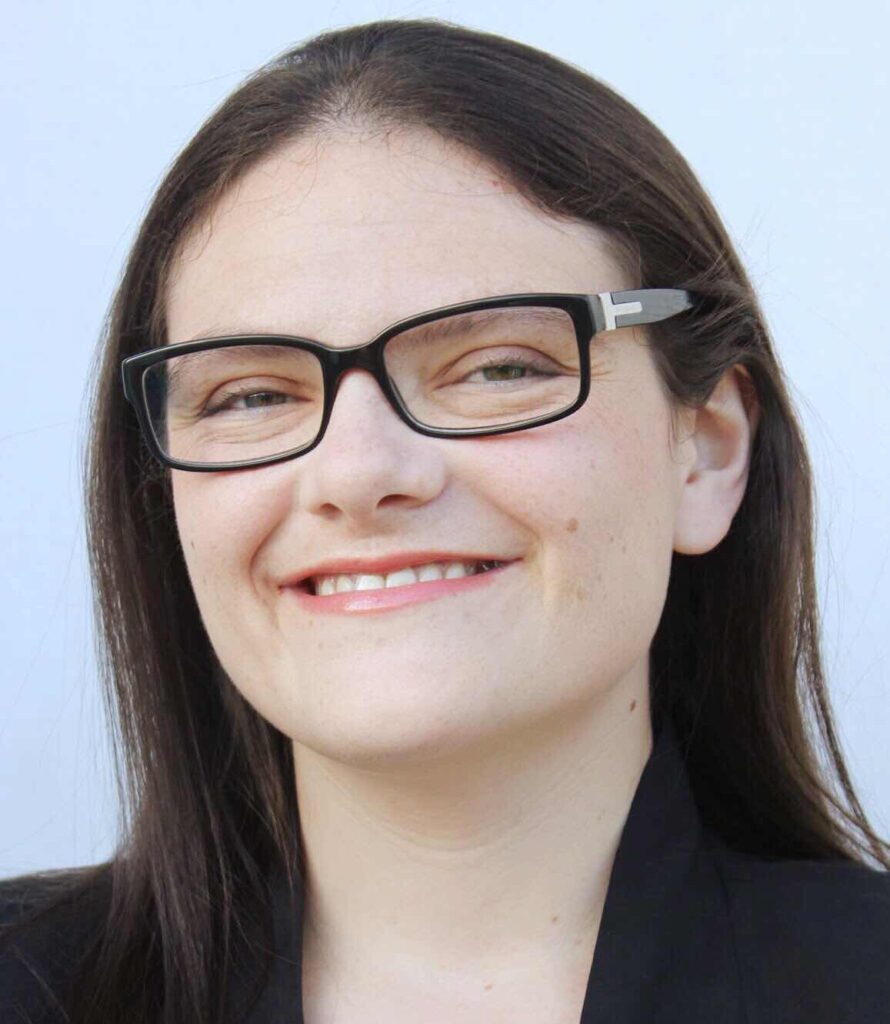July 26, 2023

Ashley Sobel Leonard, MD, PhD, is a Pediatrics Infectious Diseases Fellow at Children’s Hospital of Philadelphia. She earned her MD and PhD at Duke University and completed her residency in the Accelerated Research Program at Seattle Children’s Hospital.
Dr. Leonard knew she was pediatric ID-bound while completing her PhD. She was already considering the integrated or accelerated research pathway during her residency interview process. She became aware of PIDS and the PIDS Foundation’s Fellowship Awards by attending the NIAID/IDSA Infectious Diseases Research Careers Meeting. Additionally, interviewers in her fellowship process brought up the St. Jude-PIDS Fellowship Award in Basic and Translational Science as something to consider as she was putting together her project ideas for fellowship. Mentors as well as career advisors who had received similar awards pointed her in its direction.
Applying for the St. Jude-PIDS award forced her to think about the envisioned project in greater detail and consider the practicality of the project. It proved useful in formulating the ideas and protocols behind the research projects as well as how those projects interfaced with one another. Despite being time consuming, she found it an often-enjoyable process in putting together ideas on how it all might work. Her proposed work is pretty on track with the research she has been performing for the award.
Dr. Leonard’s fellowship research focuses on understanding how a child’s immune response influences the evolutionary trajectory of influenza virus during a single infection. Aim one of the research uses banked clinical samples to explore within-host influenza virus viral diversity in children. It is performed by deep sequencing the virus in these samples, thereby providing a snapshot of the infecting virus population and its relationship to various clinical factors such as age, vaccine history and health status. Aim two is a prospective study that enrolls hospitalized children with influenza to collect serial nasal swabs and serum samples. Having completed the first season of enrollment, she is beginning to directly analyze how a child’s immune system shapes viral evolution.
The manuscript for the first project component is being finalized now with the hope of submitting this summer. The award has helped Dr. Leonard realize a few things. First, there was a lot she didn’t know that she didn’t know about conducting clinical research. The involvement and nuances of incorporating clinical component into a basic science project is a highly involved process. A self-proclaimed data person, the project enabled using both aspects of training from medical and graduate school. Second, she loves research and designing studies that directly answer relevant questions rather than use pre-existing datasets, which may lack critical information. She aspires to continue integrating clinical research with bioinformatics, to help tackle the major challenges related to viral epidemics in a quantitatively rigorous manner. Third, this is the work she aims to pursue in her peds ID career.
Dr. Leonard recommends future interested applicants start early. “It can be really difficult to put something together quickly. If I had waited until only a couple of months before the application was due, I don’t think I would have had a strong proposal. I wouldn’t have had enough time to talk with advisors and potential collaborators to put something together that was compelling and a thorough robust plan.” She also credits the protected research time as a prized benefit that helps an awardee have a solid scientific research project and suggests capitalizing on the other opportunities offered through the award.